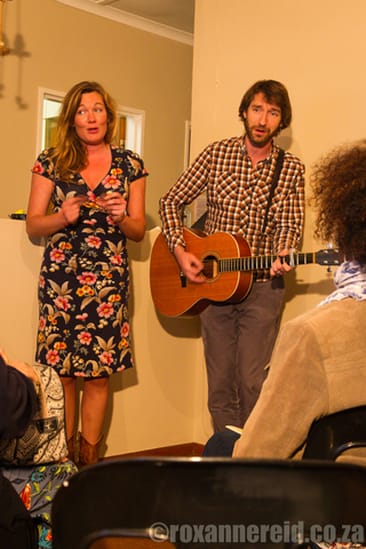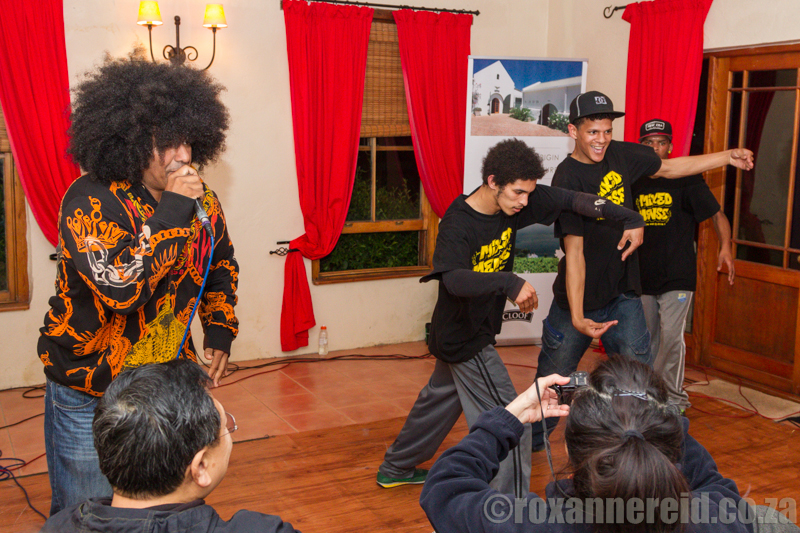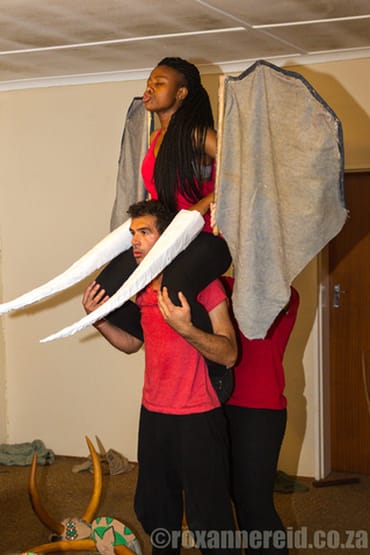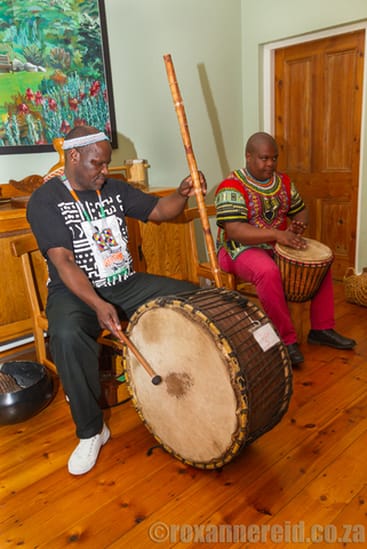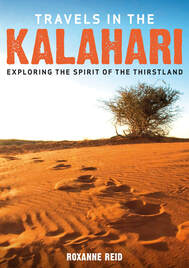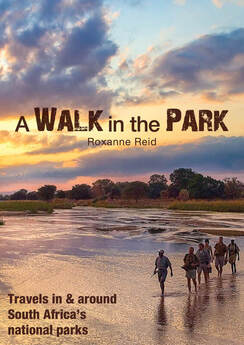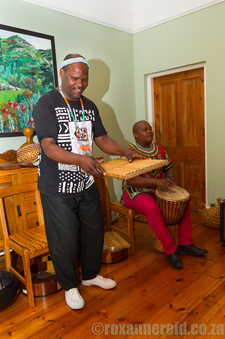 Dizu Plaatjies
Dizu Plaatjies We experienced our first Darling Voorkamerfest at the beginning of September. Over the three days of the festival in this small rural town on the Cape West Coast, we saw nine shows. Here are my top 4 highlights.
We couldn’t believe it. Our expectations weren’t particularly high, so our very first show of the weekend, Miss Molly and Me, presented in the voorkamer of a tiny house in Darling East, was a pleasant surprise.
The singing, guitar-playing duo from the Netherlands presented a medley of songs written by guitarist Helge Slikker himself. With him was singer and actress Marlijn Weedenburg, whose bubbly personality carried the audience along with her. Both had good voices and there was a natural, relaxed atmosphere as they sang songs about the beauty of everyday details you don’t usually notice until much later.
Emile had big afro hair and a personality to match. From the get-go he encouraged the audience to join in to clap and sing part of the chorus of each song.
Most impressive was the B-Boy action of the other three members of the team – quite a feat in a limited space, sometimes gravity-defying in its complexity. The audience loved the high energy routines, with a mix of dance styles and music ranging from Zulu traditional, Gumboot, Namastap, Goema and others.
Mixed Mense is a practical performance Hip Hop school that Emile started with kids from Heal the Hood Project in Lavender Hill. Part of its mission is to teach youngsters that the first people came from Africa so we’re all Africans and race is an illusion; we need to find our similarities rather than our differences.
Working with youngsters in the drug- and gang-riddled Cape Flats, it also hopes to change perceptions and teach outsiders not to make assumptions about the many worthy people who live there.
Memory, written and directed by Nhlanhla Mkhwanazi, from a story by Nicholas Ellenbogen of Theatre for Africa, told the story of why man kills the elephant.
It allowed the four actors to show their skill by playing multiple roles: game rangers, poachers, cattle owners, even wild animals. Using masks and movement as well as impressively accurate rendering of animal sounds, they cast a spell that almost had me in tears by the end.
My strong anti-poaching sentiments and their good singing, particularly by Sandisiwe Sishuba, may well have had something to do with my emotional reaction to this fine piece of drama.
My favourite show of the whole festival was by Dizu Plaatjies, traditional music artist and lecturer at UCT’s Department of Ethnomusicology. He’s also the founder and former leader of Amampondo, and founder of the Ibuyambo ensemble.
Dizu’s interest in African music has taken him all over Africa and the 10 or so hand-made instruments he and Ibuyambo member Kim Masala played for us were part of his own collection.
From a San bow, or Mrhubhe, and Djembe drums to ‘thumb-pianos’ from Zimbabwe and Mozambique, even wind instruments like mellow kudu horns and sweet Mozambican Nyanga pan pipes, they took us on a fascinating journey around Africa.
Best of all was a two-foot length of thin PVC pipe, with openings at each end but no other holes, which Dizu used to make flute-like music that fluttered over the rapt audience like liquid.
But if I had seen only Dizu Plaatjies and Memory, I would still have counted myself lucky, they were that good.
Copyright © Roxanne Reid - No words or photographs on this site may be used without permission from roxannereid.co.za
